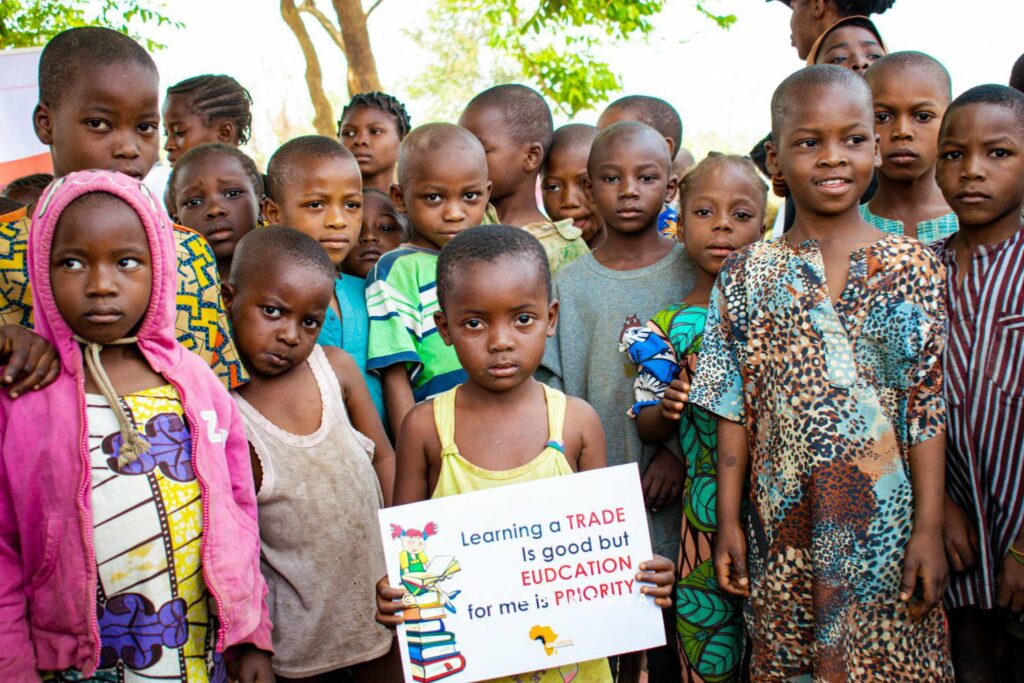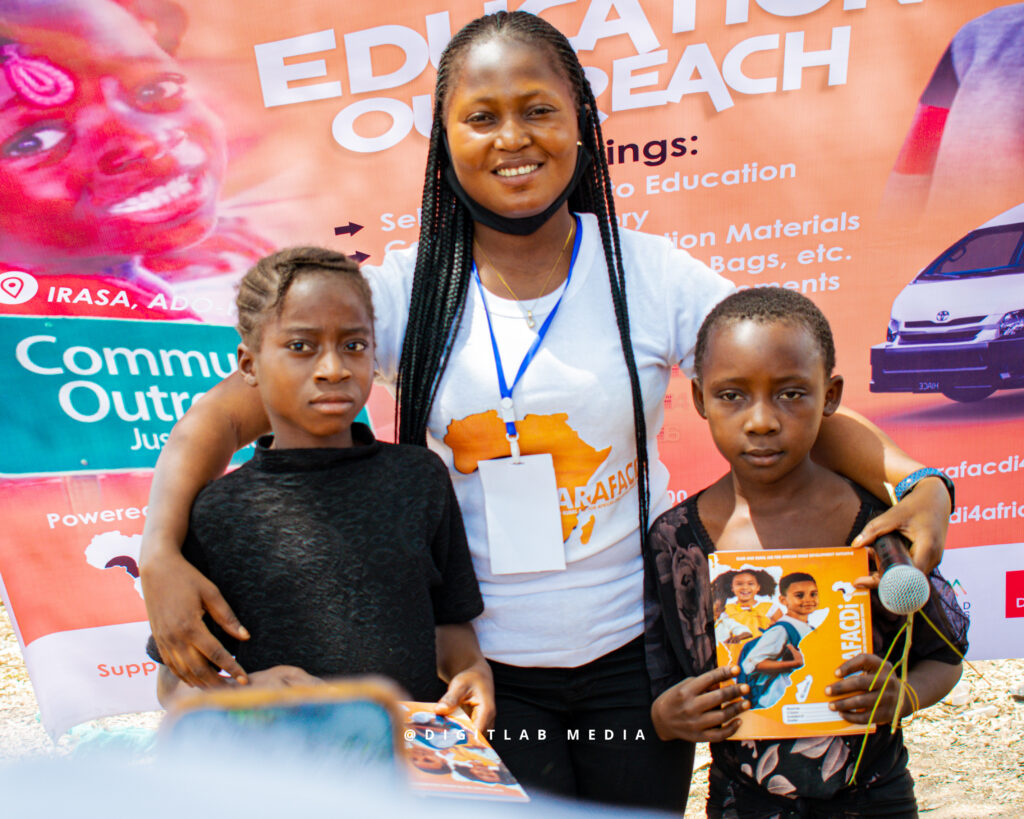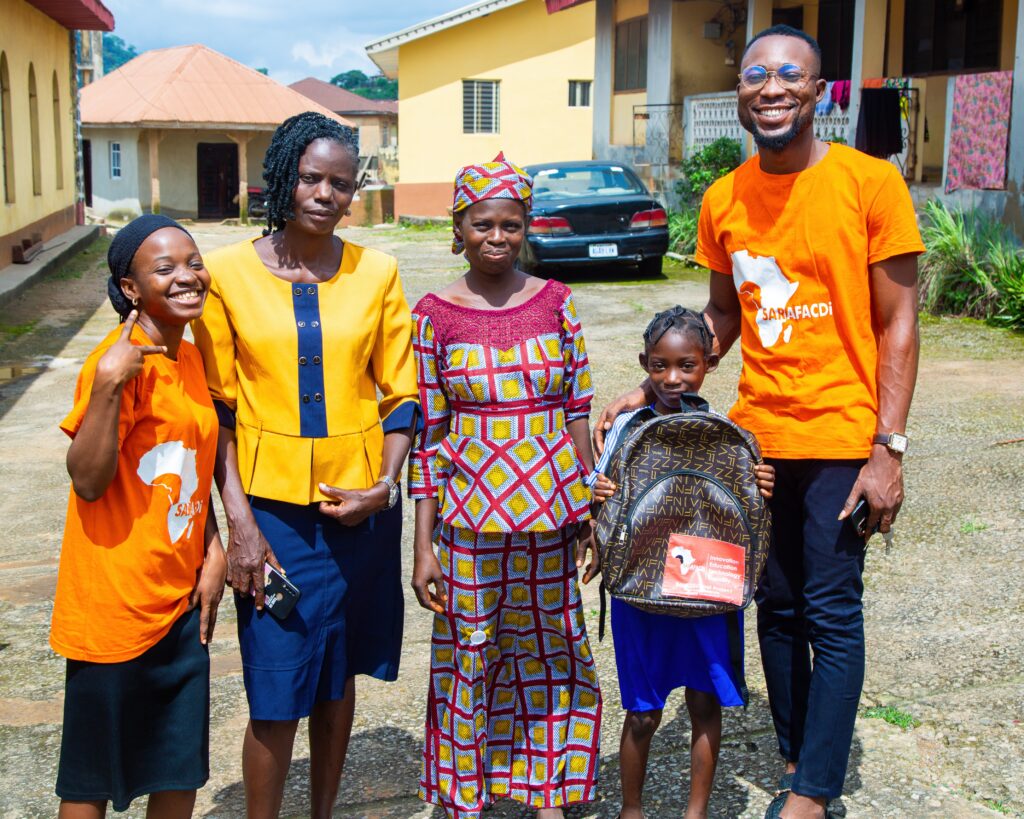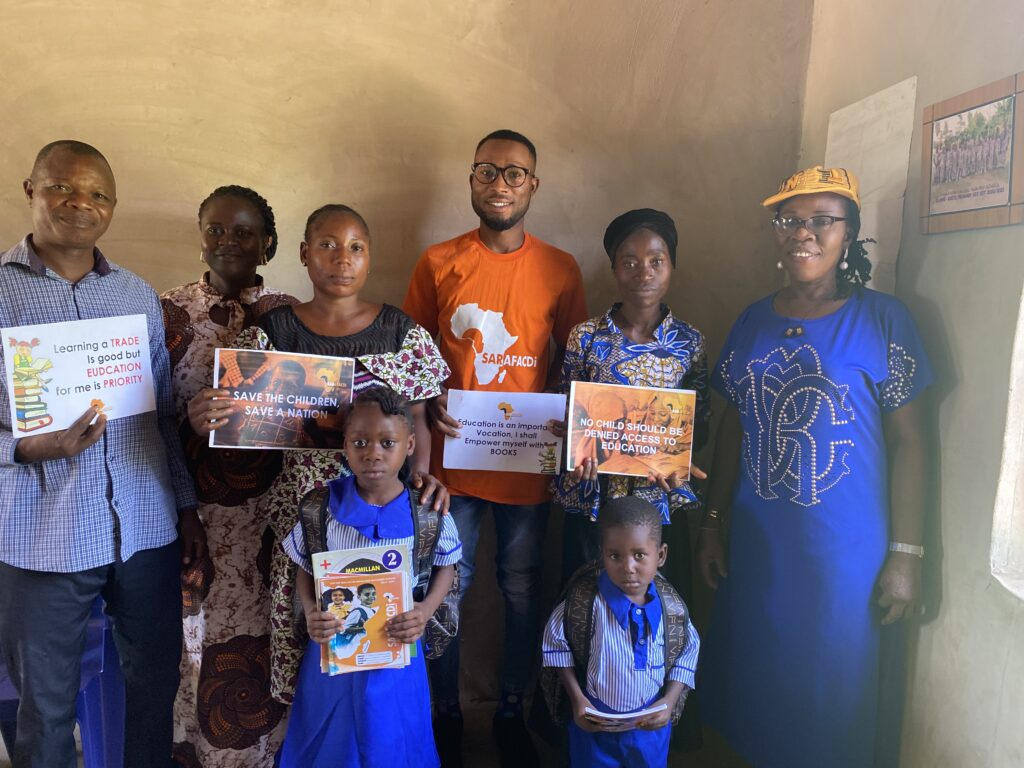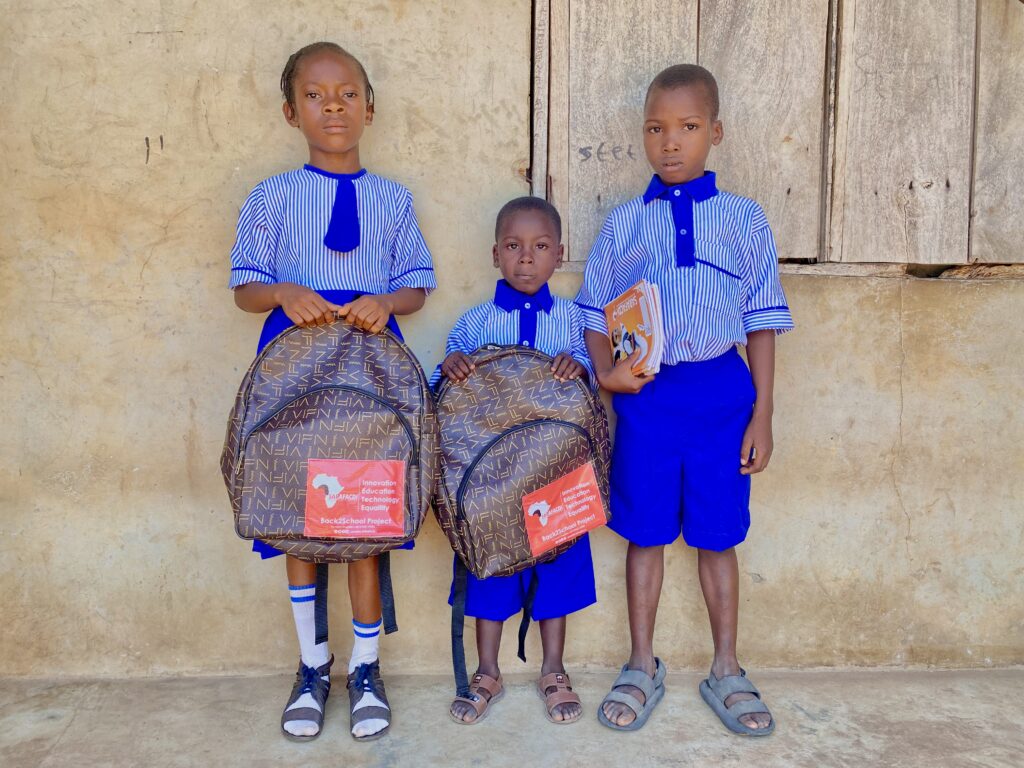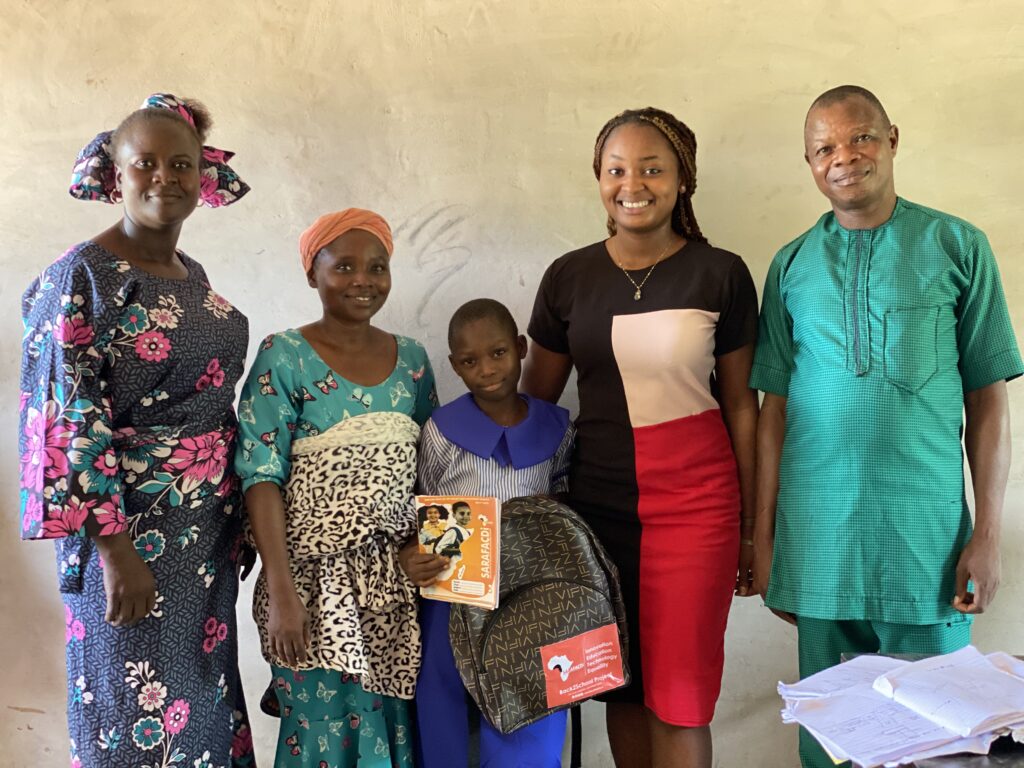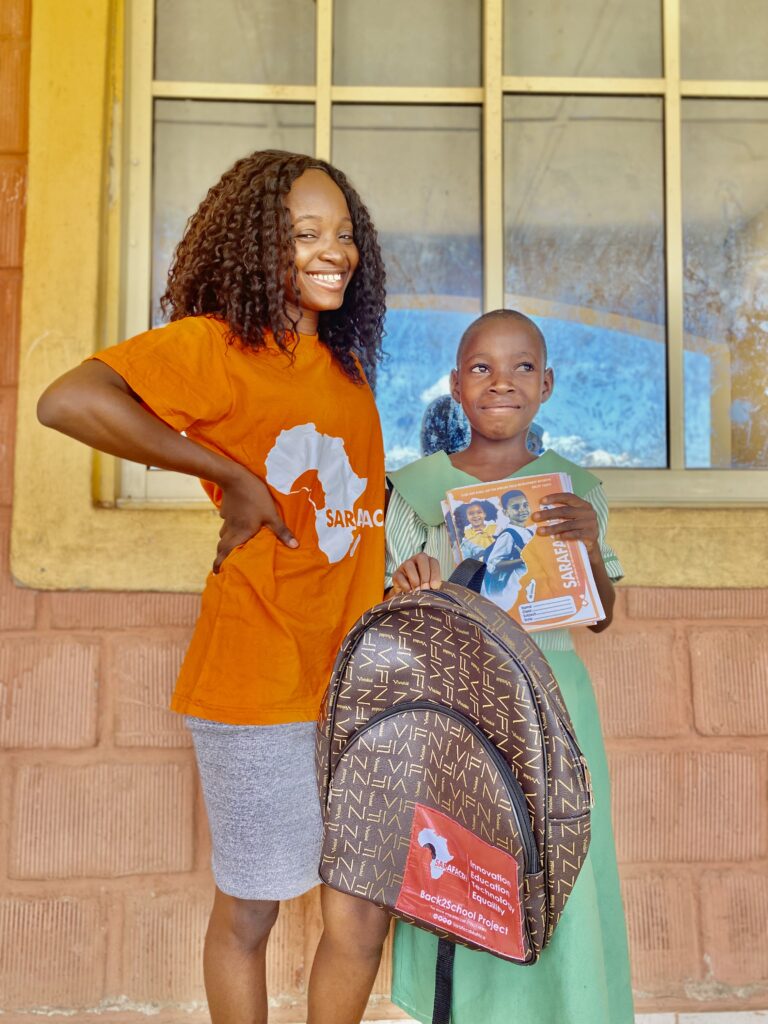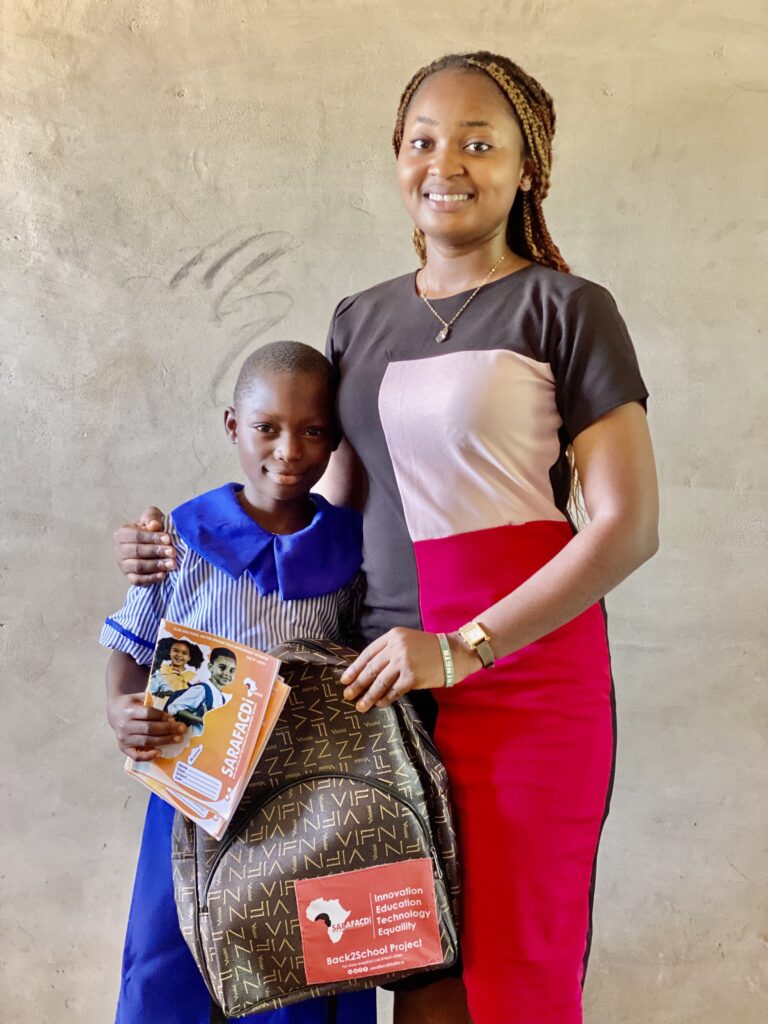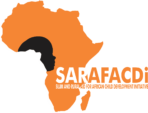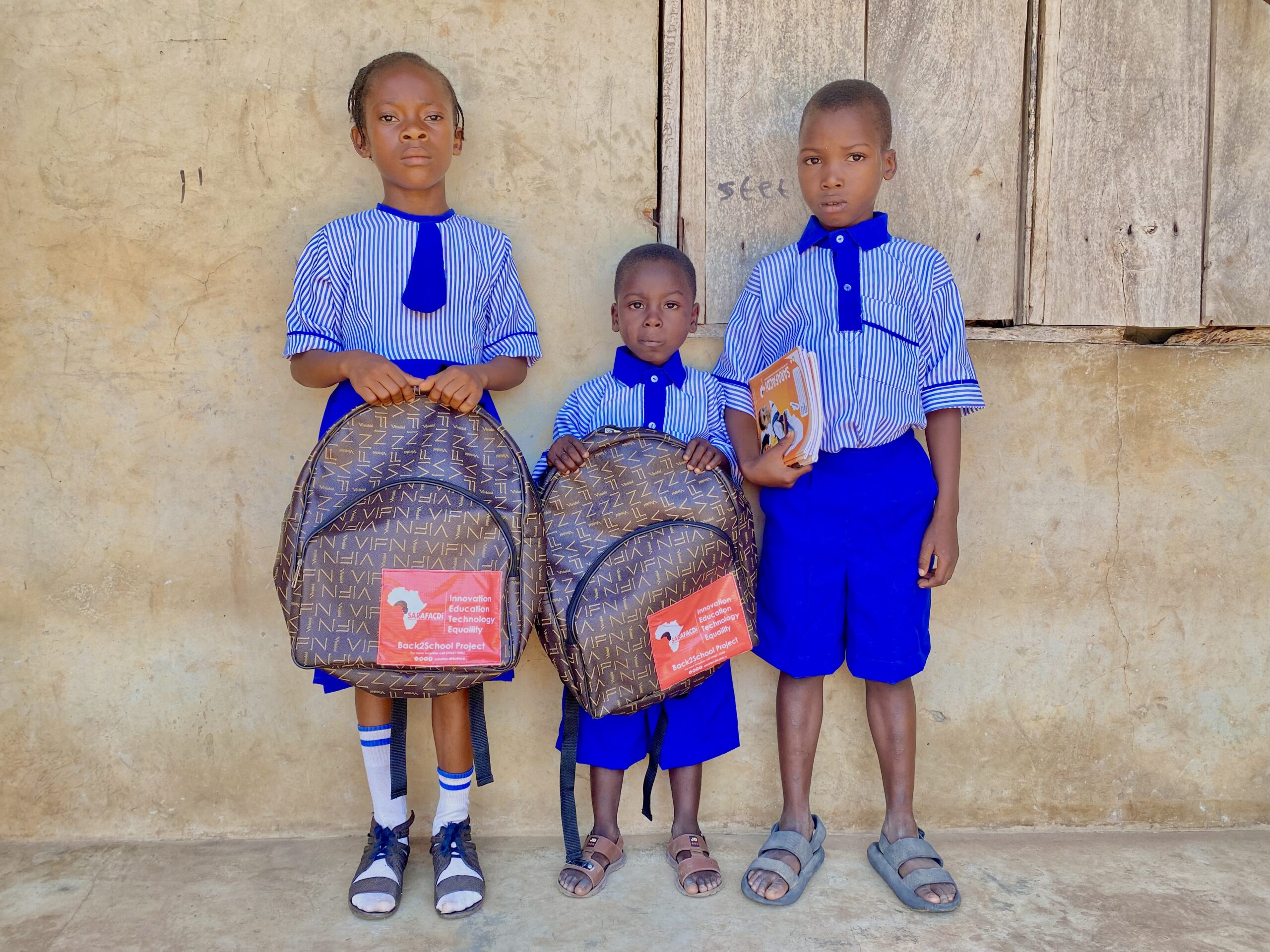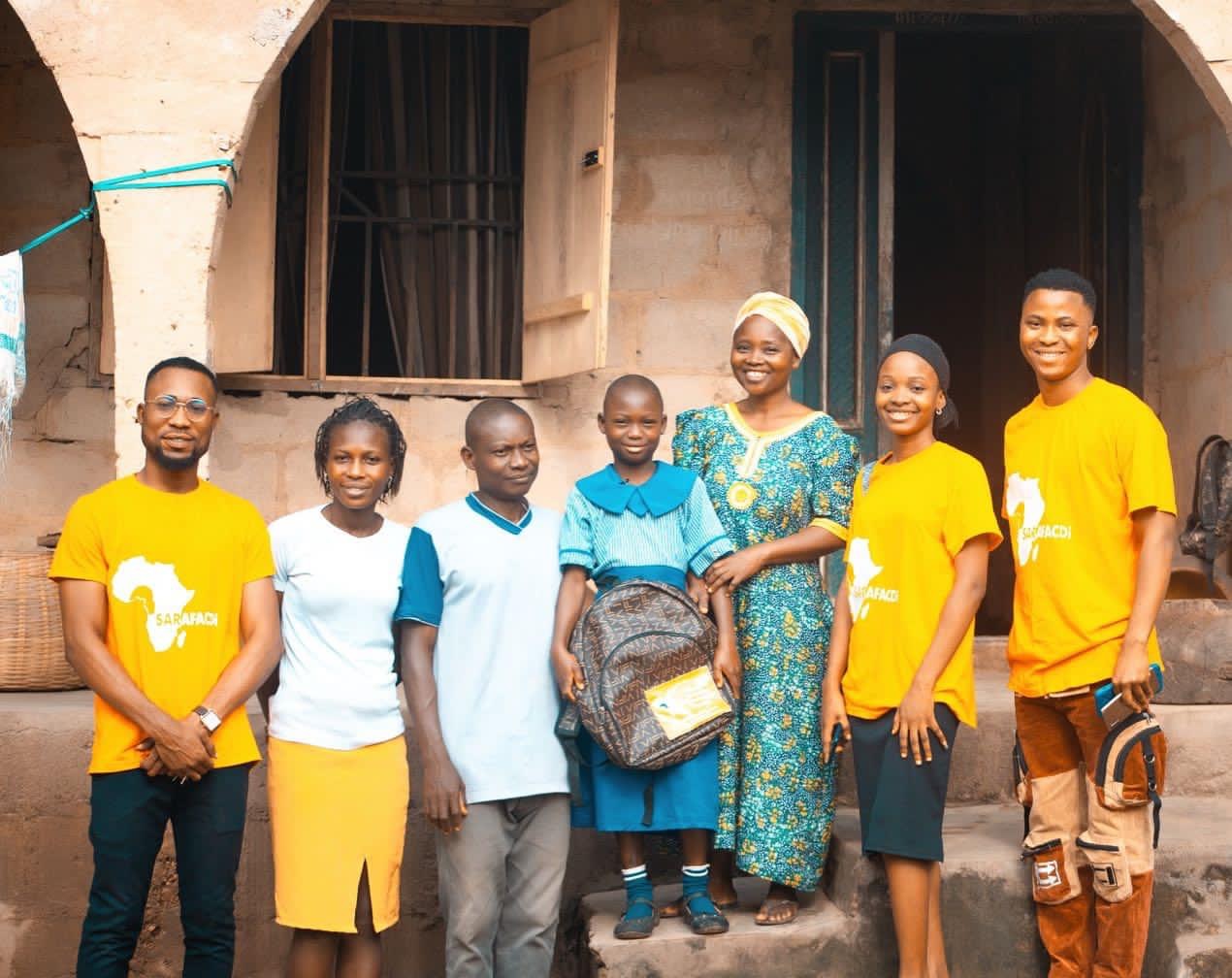
Reducing out-of-school Children
Back to School
The Issue
Across Nigeria’s rural and underserved communities, millions of children remain out of school or at high risk of dropping out, not because of a lack of ability, but due to poverty-related barriers that make even basic educational necessities unaffordable. According to UNICEF, around 10.2 million primary-age children and 8.1 million junior secondary–age children are out of school, accounting for more than 15% of the global out-of-school population and making Nigeria home to one of the world’s largest out-of-school cohorts.
Many of these children, particularly in rural areas such as Ilawe-Ekiti, Irasa-Ado, Akure, and Ibadan, come from households where the costs of uniforms, school bags, books, and writing materials are prohibitive. For children from the poorest households, poverty is the biggest barrier to attending or staying in school, and rural areas account for over 86% of out-of-school children in Nigeria, with children from the poorest quintile disproportionately affected.
In communities like these, financial hardship forces families to make difficult choices, often placing education second to survival. For many children, this results in interrupted schooling, irregular attendance, and eventual dropout, perpetuating cycles of poverty and limiting future opportunities.
“No child should be denied an education because their family cannot afford a school bag or uniform.”
BACK TO SCHOOL PROJECT DOCUMENTARY
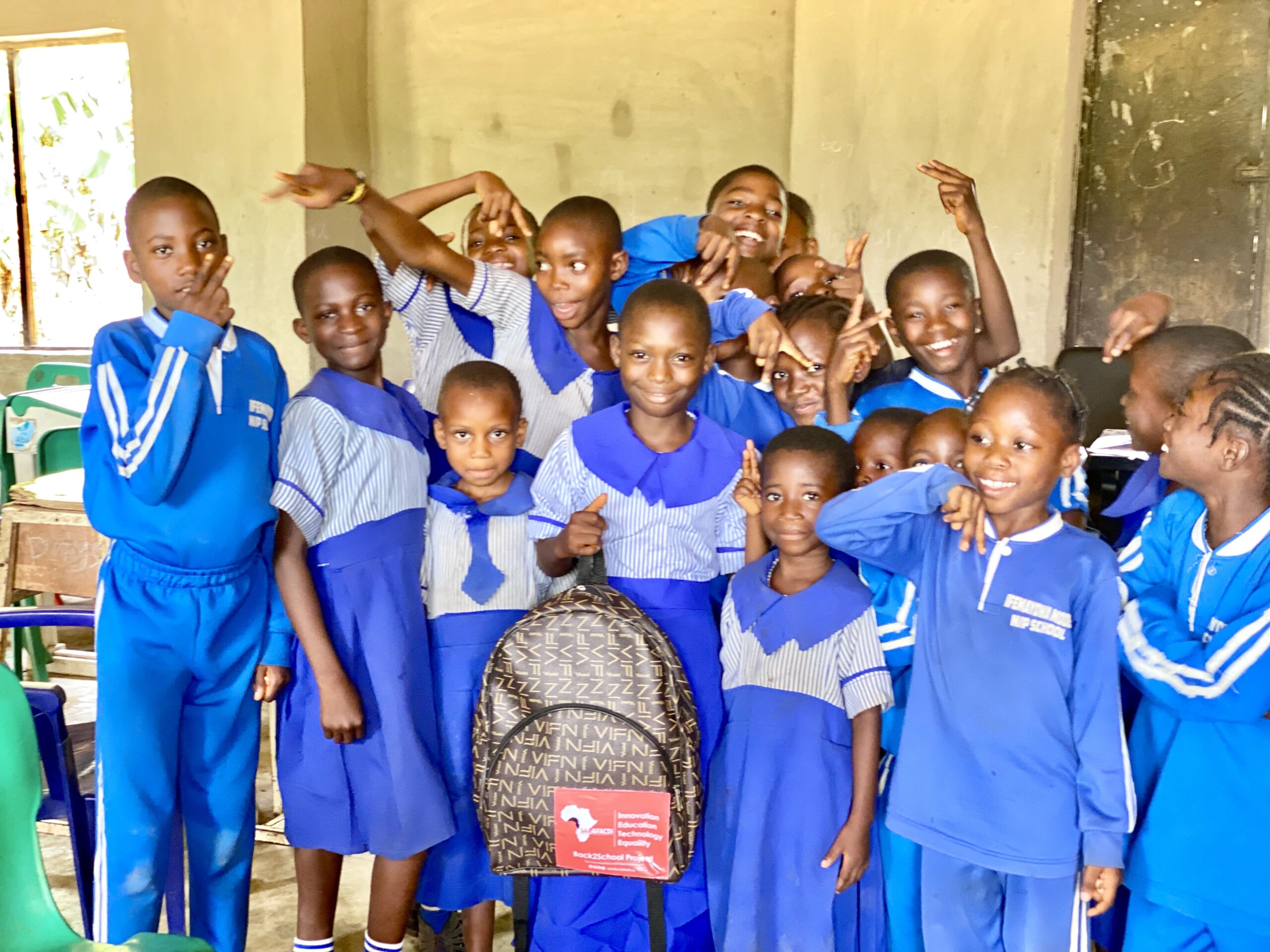
Our Organisation Approach
To address financial barriers to education and reduce the number of out-of-school children, the Slums and Rural Aid for African Child Development Initiative (SARAFACDI) launched the Back2School Project in 2023.
Inspired by the lived experience of the team lead, Blessing Tunde Dada, who faced periods of school dropout due to financial constraints, Back2School was designed as a community-driven intervention that restores access, dignity, and motivation for vulnerable learners.
The pilot phase focused on Ilawe-Ekiti, where SARAFACDI provided essential educational materials directly to children and households most in need. By removing cost-related obstacles, the initiative encourages school enrollment, retention, and renewed engagement with learning.
To further expand access to learning materials, SARAFACDI also launched the One Book for a Child initiative, an advocacy-driven effort that has supported the production and distribution of over 7,000 books, strengthening reading culture and literacy in underserved communities.
Back2School is designed to:
- Reduce financial barriers preventing school attendance.
- Provide essential learning materials to vulnerable children.
- Strengthen community ownership of children’s education.
- Create supportive learning environments that motivate children to stay in school.
Impact Metrics
| Indicator | Result |
|---|---|
| Children Supported | 4,000+ children |
| Communities Reached | Ilawe-Ekiti, Sagamu, Ado, Irasa (Ado-Ekiti), Akure, Ibadan |
| Educational Materials Distributed | Uniforms, school bags, books, writing materials |
| Books Produced & Distributed | 7,000+ (One Book for a Child initiative) |
| Beneficiary Schools | Over 10 primary and secondary schools |
| Implementation Period | 2023 – ongoing |
Outcomes & Impact
- Increased school enrollment and improved attendance among supported children.
- Reduced dropout risk for children from low-income households.
- Improved learner confidence, dignity, and classroom participation.
- Strengthened collaboration with parents, teachers, and community leaders.
- Expanded access to age-appropriate reading materials and learning tools.
- Renewed community commitment to keeping children in school.
Challenges Identified
- Demand for school materials exceeded available resources.
- Logistical difficulties in reaching remote households.
- Limited funding for long-term follow-up and expansion.
- Growing need for mentorship and academic support beyond material provision.
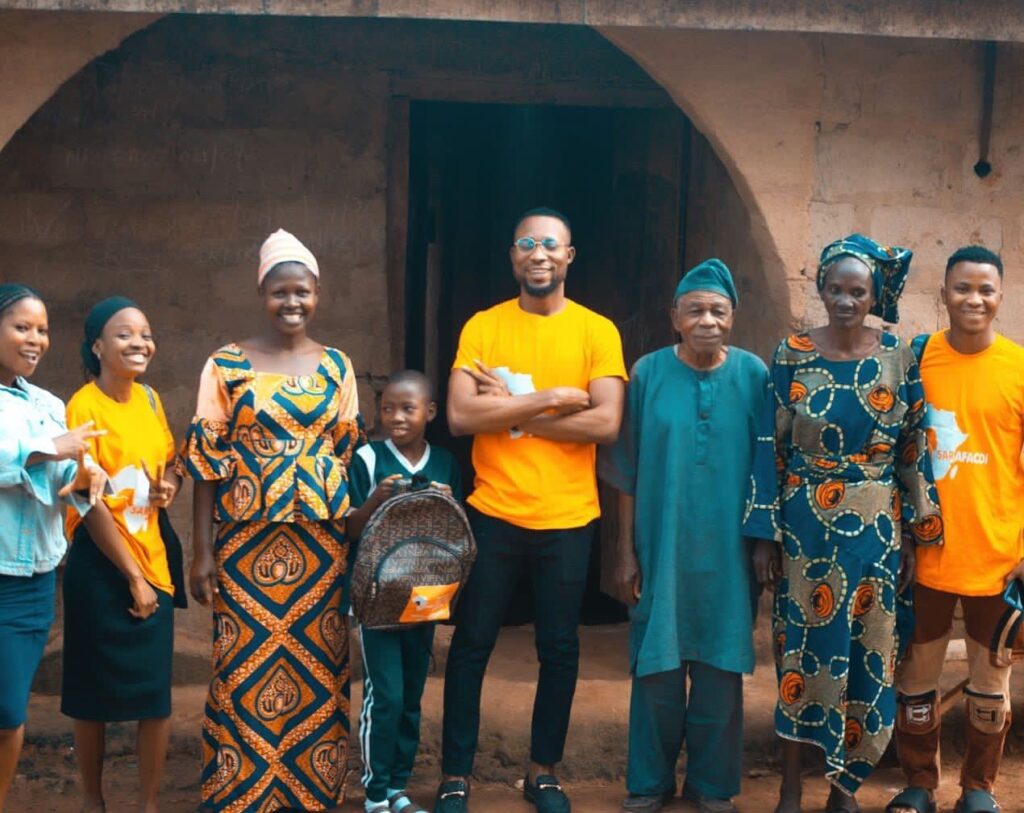
Conclusion
The Back2School Project demonstrates that education access is not only about classrooms but also about removing the invisible barriers that keep children out of them. By meeting children at their point of need, SARAFACDI has helped thousands return to school with dignity, confidence, and hope.
The project’s success reinforces a powerful truth: when communities, organizations, and families work together, education becomes possible—even in the most resource-constrained settings.
“Education should not be a privilege reserved for those who can afford it. Back2School brings learning within reach for every child.”
Gallery
